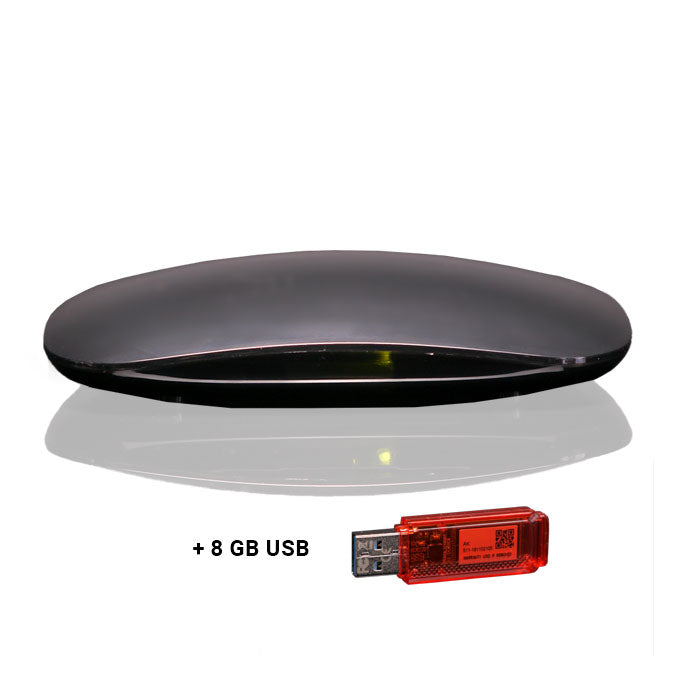The Ultimate Guide to DVRs: Features and Benefits

DVRs, or Digital Video Recorders, have revolutionized the way we consume television. They allow viewers to record, pause, and rewind live TV, making it easier to manage viewing schedules. With the rise of streaming services, DVRs remain a popular choice for those who want flexibility in their viewing habits. This article explores the different aspects of DVRs, helping you understand their functionalities, features, and benefits.
Understanding What a DVR Is
A Digital Video Recorder is a device that enables users to record television programs for later viewing. DVRs connect to your cable or satellite box, allowing you to capture live broadcasts. They utilize a hard drive to store recorded content, providing easy access to your favorite shows and movies whenever you wish. With the capability to record multiple shows simultaneously, DVRs have become indispensable for busy households.
Types of DVRs Available
DVRs come in various types, catering to different user needs. Some are standalone devices that connect to your television, while others are integrated into cable or satellite boxes. There are also network-based DVRs that allow users to record content via the internet. Each type has its advantages, depending on how you plan to use it, making it essential to choose one that aligns with your viewing habits.
Key Features of DVRs
Modern DVRs boast an array of features designed to enhance user experience. One of the most important features is the ability to schedule recordings, enabling users to select shows they want to capture ahead of time. Another key feature is the pause and rewind function, which allows viewers to skip commercials or replay segments they might have missed. Additionally, many DVRs now come equipped with streaming capabilities, letting users access their favorite online content seamlessly.
The Benefits of Using a DVR
DVRs offer numerous benefits that make them a valuable addition to any home entertainment system. The primary advantage is the convenience of recording live television, allowing you to watch programs at your leisure. This feature is particularly beneficial for families with varying schedules. Furthermore, DVRs often provide an organized library of recorded content, making it easy to find and watch your favorite shows. Additionally, the ability to skip commercials enhances the viewing experience significantly.
DVR Storage Capacity
One crucial consideration when choosing a DVR is its storage capacity. DVRs typically come with varying amounts of storage, measured in hours of recording time. Depending on how much content you plan to record, a higher capacity may be necessary. Standard DVRs can store anywhere from 60 to 200 hours of programming. However, some high-end models offer even more storage, catering to avid TV watchers who need to store extensive libraries of content.
Setting Up Your DVR
Setting up a DVR is generally a straightforward process. Most models come with an installation guide that outlines the necessary steps. First, connect the DVR to your television and cable or satellite box. Next, configure the settings, including language and recording options. Finally, run a channel scan to ensure all available channels are recognized. After the initial setup, users can start scheduling recordings and enjoying their favorite shows.
How to Record Shows on a DVR
Recording shows on a DVR is typically easy. Most devices feature a dedicated “Record” button on the remote control. Users can select the desired program from the TV guide and press this button to schedule a recording. Additionally, many DVRs allow users to set up series recordings, which automatically capture new episodes of their favorite shows. This feature is particularly useful for viewers who don’t want to miss any episodes.
Managing Recorded Content
Managing your recorded content is essential for making the most of your DVR. Most devices have an organized interface that displays all recorded shows. Users can delete unwanted recordings to free up storage space. Furthermore, many DVRs allow for easy navigation through recorded content, enabling you to sort by date or title. Regularly managing your recordings ensures that you have enough space for new content.
The Cost of DVRs
The cost of DVRs can vary widely based on features and storage capacity. Basic models may start as low as $50, while high-end devices can exceed $400. Additionally, many cable and satellite providers offer DVR services as part of their subscription packages. Understanding the long-term costs associated with a DVR is essential, as users may incur monthly fees for storage and access to premium features.
DVRs vs. Streaming Services
With the rise of streaming services, many consumers wonder how DVRs compare. While streaming services offer on-demand access to a vast library of content, DVRs provide the flexibility to capture live broadcasts. For viewers who enjoy traditional television, a DVR can be a valuable tool. However, many modern DVRs also include integration with streaming platforms, allowing users to enjoy both live and on-demand content seamlessly.
Future of DVR Technology
The future of DVRs technology looks promising, with advancements continually emerging. Many manufacturers are integrating cloud storage capabilities, allowing users to access recorded content from multiple devices. This technology provides increased flexibility and accessibility, ensuring that users can watch their favorite shows anywhere. As streaming continues to grow, DVRs will likely evolve to incorporate more advanced features that cater to changing consumer preferences.
FAQs
What is the primary function of a DVR?
The primary function of a DVR is to record live television broadcasts for later viewing. Users can pause, rewind, and schedule recordings of their favorite shows.
Can I watch recorded shows on multiple devices?
Many modern DVRs offer cloud storage options, allowing users to access recorded shows on multiple devices, such as smartphones and tablets.
How much storage do I need for a DVR?
The required storage for a DVR depends on your viewing habits. For average users, a DVR with 60 to 100 hours of recording time is usually sufficient, while avid watchers may benefit from models with 200 hours or more.
- Art
- Causes
- Crafts
- Dance
- Drinks
- Film
- Fitness
- Food
- Giochi
- Gardening
- Health
- Home
- Literature
- Music
- Networking
- Altre informazioni
- Party
- Religion
- Shopping
- Sports
- Theater
- Wellness


